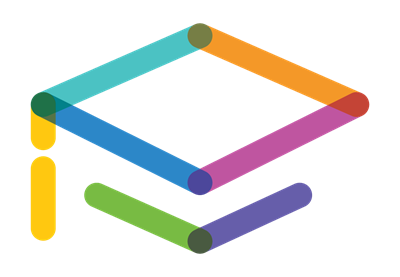Remote Learning
The objective for remote learning at JPII was two-prong:
- continue providing an effective education for students as quickly as possible following the need to suspend face-to-face learning
- maintain as much of a sense of normalcy as possible for our entire school community: students, parents, faculty, and staff
Below you will find how we approached remote learning along with information for how parents/guardians could support their children’s learning and considerations tailored to make the best of challenging circumstances.
Community is very important at JPII, even more so during times of remote learning. That’s why we contacted everyone on Fridays for a Family Check-In. Is everyone safe and healthy? If not, how can we help? Or maybe you are struggling a bit with being stir-crazy but still holding it together. We wanted to know how our families were doing!

Diocese of Raleigh Bishop Luis Rafael Zarama (top middle) dropped into senior theology on March 31, 2020. “This is a great lesson for all of us that life changes. We have plans, but our plans are sometimes different than what life gives us. Learning to be at home, limited in many different ways, is a time for us to appreciate what we have and give thanks to the Lord for that,” Zarama said.
At the core of our approach to remote learning is the belief that we should think differently about our priorities when responding to challenging circumstances, and we should embrace new opportunities for students to learn in authentic, meaningful ways.
The JPII approach to remote learning begins with the assertion that the learning experiences teachers design when school is in regular session cannot be simply replicated through distance learning. In particular, the invaluable social interactions and mediation that occurs naturally among students and between teachers and students cannot be recreated in the same way.
We deliberately use the term remote learning rather than technology-specific labels such as “virtual learning,” “e-learning,” or “online classes.” This choice reflects our conviction that quality learning can occur remotely without solely relying on computers. Our goal is for students to read, communicate, and engage in authentic learning experiences while continuing to be physically active.
The use of technology in our classes is aided by a 1-to-1 iPad program. These school-issued iPads house digital textbooks and provide the apps necessary for each class.
We utilize Google Classroom and Hangouts Meet to power remote learning because Google is committed to building products that help protect student and educator privacy and provide best-in-class security. Their default-on measures help keep our online classrooms secure, including:
-
Encrypting all data in transit by default between the client and Google for video meetings on a web browser, on the Android and iOS apps, and in meeting rooms with Google meeting room hardware.
-
Supporting compliance requirements around regulations including COPPA, FERPA, GDPR, and HIPAA.
-
Making it difficult to guess the ID of a meeting and make an unauthorized attempt to join it by using codes that are 10 characters long, with 25 characters in the set.
-
Leveraging Google Cloud’s defense-in-depth approach to security, which utilizes the built-in protections and global-private network that Google uses to secure your information and safeguard your privacy.
A transition to remote learning is a challenge for families. Parents need to think differently about how to support their children; how to create structures and routines that allow their children to be successful; and how to monitor and support their children’s learning. Some students will thrive with distance learning, while others may struggle. The guidelines provided below are intended to help parents think about what they can do to help their children find success in a distance learning environment.
Students are asked to:
-
Follow their regular school schedule (8:00 a.m. to 3:02 p.m.), engage actively and “attend” the online learning activities at the right time. Every subject will “meet” as scheduled.
-
Show teachers that they are engaged by contributing to class discussions and submitting completed tasks (meeting deadlines).
-
Collaborate with students online as asked and with teachers during and after the lessons where possible.
-
Complete readings and other homework that may be assigned.
-
Submit all assignments on time.
Students Roles & Responsibilities
-
Establish daily routines for engaging in the learning experiences (e.g. 8:00am start)
-
Identify a comfortable, quiet space in your home where you can work effectively and successfully
-
Complete assignments with integrity and academic honesty, doing your best work
-
Be proactive in reaching out to teachers when you have questions or assignments are unclear
-
Communicate proactively with your teachers if you cannot meet deadlines or require additional support
-
Collaborate and support your peers in their learning
-
Comply with the JPII Acceptable Use Policy, including expectations for online etiquette
-
Proactively seek out and communicate with other adults at JPII as different needs arise
During Spring Break 2020 while remote learning was in place due to COVID-19, our faculty and staff sent this message to our students.
For Teacher Appreciation Week 2020, our seniors had a very special message for their teachers.






